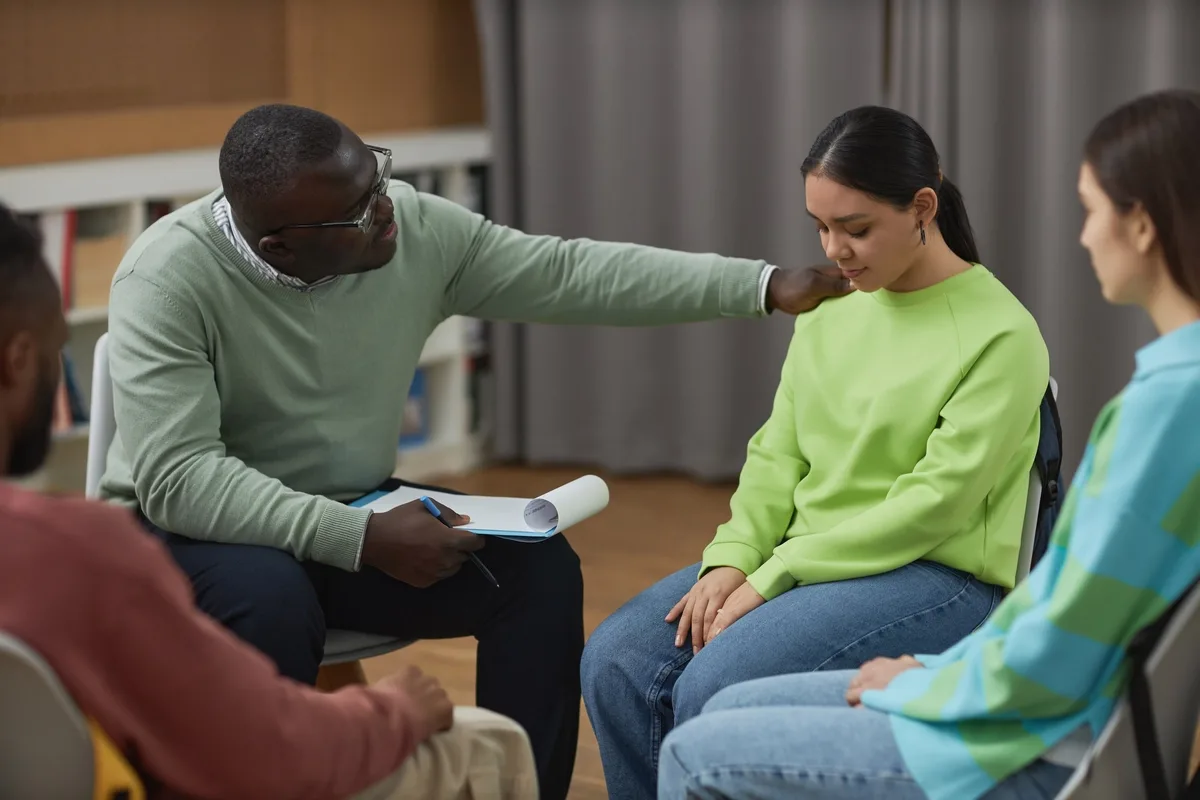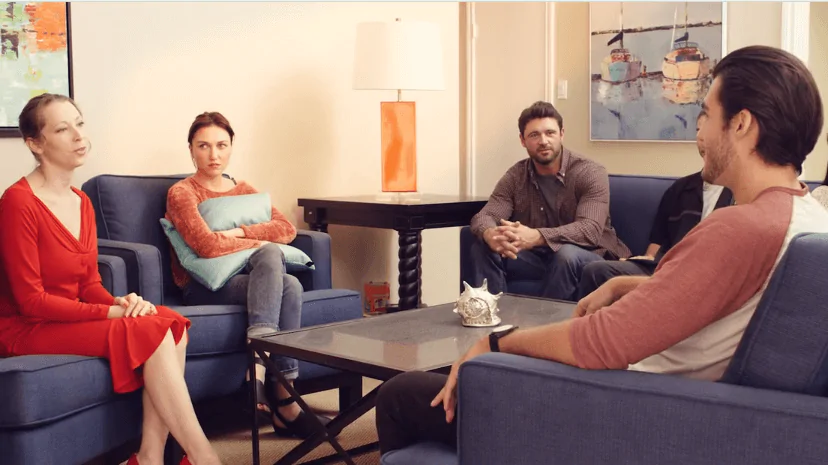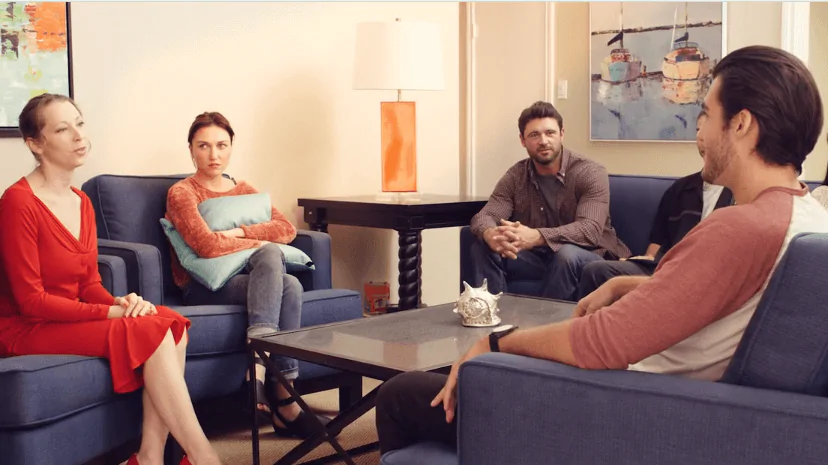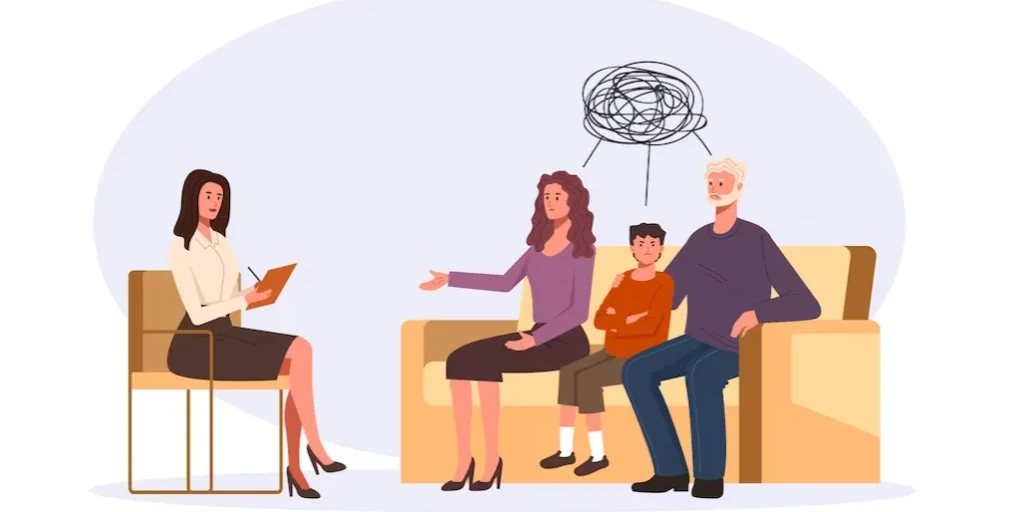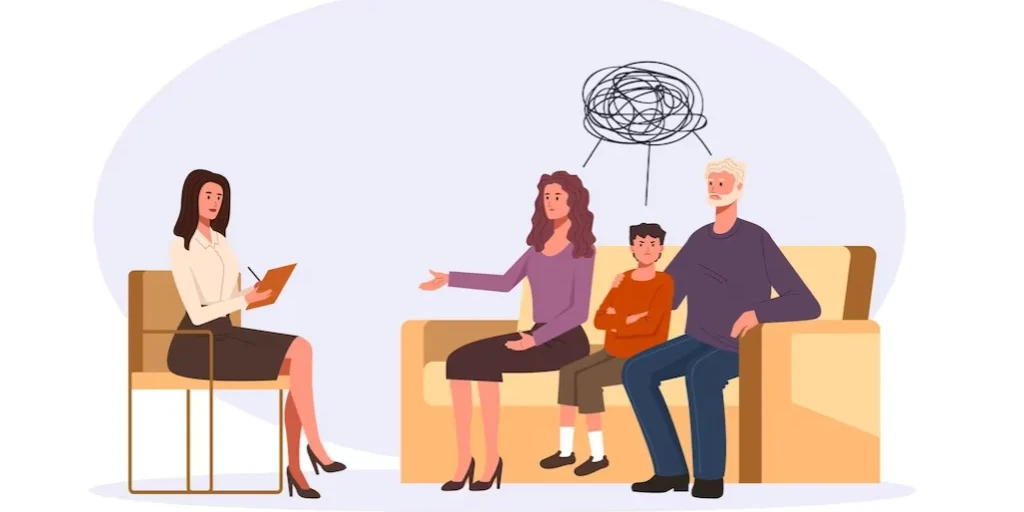24/7 Helpline:
(866) 899-221924/7 Helpline:
(866) 899-2219
Learn more about 90-day Rehab Program centers in Palm Beach County

Other Insurance Options

Evernorth

BHS | Behavioral Health Systems

Health Net

United Health Care

PHCS Network

AllWell

Coventry Health Care

Group Health Incorporated

BlueShield

WellPoint

Covered California

Private insurance

Access to Recovery (ATR) Voucher

Lucent

Multiplan

GEHA

Self-pay options

Absolute Total Care

Magellan Health

Humana

Ambrosia Treatment Center
The Ambrosia Treatment Center is a drug and alcohol addiction treatment rehab in West Palm Beach, FL...

Allure Detox
Allure Detox is a dual diagnosis addiction treatment center in West Palm Beach, Florida. They provid...

Seacrest Recovery Center Boynton Beach
Seacrest Recovery Center Boynton Beach is a private rehab located in Boca Raton, Florida. Seacrest R...

Retreat at Palm Beach
The Retreat at Palm Beach is an accredited substance abuse treatment center in Lake Worth, FL. The c...

Still Detox
Still Detox is a CARF accredited luxury dual diagnosis drug rehab center located in Boca Raton, FL. ...

Zinnia Healing at Lake Okeechobee
Nestled in the tranquil settings of Florida, Zinnia Health Lake Okeechobee emerges as an addiction a...

Beachway Therapy Center
Beachway Therapy Center is an alcohol and drug rehab center and mental health counseling center in W...

Boca Recovery Center
Boca Recovery Center is a drug and alcohol treatment center that supports adults with substance use ...

Transformations at Jupiter Counseling
Transformations at Jupiter Counseling is a private rehab located in Jupiter, Florida. Transformation...

Wellness Resource Center
Wellness Resource Center provides partial hospitalization and intensive outpatient program with hous...

ARTS Alternative Relapse
ARTS Alternative Relapse is a private rehab located in West Palm Beach, Florida. ARTS Alternative Re...

Pace Center for Girls
Pace Center for Girls is a private rehab located in West Palm Beach, Florida. Pace Center for Girls ...

The Recovery Team
North Palm Beach’s Recovery Team is a drug and alcohol rehab that supports adults with substance use...

Best Life Counseling
Best Life Counseling is a private rehab located in Jupiter, Florida. Best Life Counseling specialize...

Headwaters at Origins
HeadWaters at Origins offers an extraordinary, residential, client-centered, clinically-driven optio...

London Treatment Center of Florida
London Treatment Center of Florida is a private organization located at West Palm, the facility prov...

Faith Farm Ministries – Boynton Beach Campus
Faith Farm Ministries - Boynton Beach Campus operates a free, faith-based, long-term residential, dr...

Palm Beach Outpatient Detox
Palm Beach Outpatient Detox offers outpatient treatment for individuals with alcohol and/or substanc...

Recovery Resources Enterprises
Recovery Resources Enterprises is a private rehab located in Pahokee, Florida. Recovery Resources En...

Sober Living in Delray
Sober Living in Delray is located in beautiful Delray Beach, walking distance from 12-step meetings,...

Saint Mary’s Medical Center – Mental Health
Saint Mary’s Medical Center – Mental Health is a private rehab located in West Palm Beach, Florida. ...

Center for Family Services
Center for Family Services is a private rehab located in West Palm Beach, Florida. Center for Family...

The Recovery Village Palm Beach at Baptist Health Drug and Alcohol Rehab
The Recovery Village Palm Beach at Baptist Health delivers comprehensive alcohol and drug rehab serv...

Genesis House Addiction Treatment
Genesis House is a family owned and operated treatment center providing the highest quality of care ...

Beachcomber Family Treatment Center
The Beachcomber is an addiction treatment center that offers residential and outpatient services for...

Seastone Drug & Alcohol Treatment Center
Seastone is an alcohol and drug rehabilitation center that offers highly individualized treatment in...

Access Recovery Solutions
Access Recovery Solutions is a private rehab located in Delray Beach, Florida. Access Recovery Solut...

Transformations
Transformations Treatment Center is a premier, nationally recognized drug and alcohol treatment prog...

Sunset House Recovery Center
Sunset House Recovery Center is a non-profit rehab located in Palm Beach Gardens, Florida. Sunset Ho...

Palm Beach Recovery Coalition – GW House
Palm Beach Recovery Coalition - GW House is a non-profit rehab located in Lake Worth, FL. Palm Beach...

Freedom House of Palm Beach
Freedom House of Palm Beach is a halfway house located in West Palm Beach, FL. Freedom House of Palm...

Delray Center for Healing
Delray Center for Healing is an alcohol and drug rehab center in Delray Beach, Florida that provides...

Counseling Services Institute
Counseling Services Institute is a private rehab located in Boca Raton, Florida. Counseling Services...

The Recovery Center for Men of the Palm Beaches
The Recovery Center for Men of the Palm Beaches is a private rehab located in North Palm Beach, Flor...

Luna Cottage
Luna Cottage is a private rehab located in Lake Worth, Florida. Luna Cottage specializes in the trea...

Mandala Healing Center
The Mandala Healing Center is a drug and alcohol addiction rehab center providing holistic treatment...

South County Mental Health Center
Located in DelRay Beach, Florida, South County Mental Health is a mental health treatment center tha...

The Palm Beach Institute
The Palm Beach Institute offers inpatient treatment for individuals with substance addiction. The pr...

Sunrise Detox Lake Worth
Sunrise Detoxification Center is a residential rehab located in Lake Worth, FL. Sunrise Detoxificati...

Easy Does It Club
Easy Does It Club is a non-profit rehab located in West Palm Beach, Florida. Easy Does It Club speci...

Wayside House
Wayside House is a Delray Beach, Florida drug and alcohol treatment center that supports women strug...

Recovery Associates of the Palm Beaches
Recovery Associates is a dual diagnosis addiction recovery center that focuses on long term, sustain...

Family Health Counseling Center
Family Health Counseling Center provides drug testing and substance abuse counseling. Family Health ...

Caron Renaissance
Caron Renaissance is a drug and alcohol treatment center that supports adults with substance use dis...

Lighthouse Detox – Jupiter Medical Center
Lighthouse Detox – Jupiter Medical Center is a private rehab located in Jupiter, Florida. Lighthouse...

Insight to Recovery
Insight to Recovery is an experiential program, putting recovery principles to work with supervision...

Believe Treatment Center
Believe Treatment Center is a state licensed drug and alcohol treatment facility located in Palm Bea...

Immersion Recovery Center – Congress Ave
Immersion Recovery Center is a 12-step addiction treatment facility serving men and women struggling...

Florida Recovery Group
Florida Recovery Group services address clients addictions with innovative methods develop in a natu...

Lighthouse Recovery Institute
Lighthouse Recovery Institute specializes in comprehensive treatment for substance abuse and trauma....

Royal Life Centers
Royal Life Centers is a network of addiction treatment centers located in both Washington state and ...

All In Solutions Counseling Center
All In Solutions Counseling Center is an Intensive Outpatient Program that focuses on bridging the g...

Bright Futures Treatment Centers
Bright Futures Addiction Treatment Centers helps individuals and families through the battle of addi...

Safe Harbour Recovery
Safe Harbour Recovery provides Florida Drug and Alcohol Addiction Treatment for men and women by lea...

Level Up Lake Worth
Level Up Lake Worth is a multi-faceted drug & alcohol treatment center that uses a repertoire of met...

Proactive Recovery Center
Proactive Recovery Center is a drug and alcohol treatment center located in beautiful Delray Beach, ...

Delray Beach IOP
Delray Beach IOP offers addiction treatment of the highest quality where both men and women learn ho...

Recovery Boot Camp
Each member of the Recovery Boot Camp staff is in recovery themselves. They provide Residential, PHP...

The Living Solutions
The Living Solutions Leading Addiction & Dual Diagnosis Treatment is a private facility exclusively ...

Beachcomber Family Treatment Center
Beachcomber Family Treatment Center - Woolbright Road is an addiction treatment center that offers o...

Treatment Partners Of America
Treatment Partners of America is the most comprehensive addiction and dual diagnosis treatment facil...

Life Choice Solutions
Life Choice Solutions is an unique private service provider specializing in treating individuals, co...

Palm Beach Elite Counseling Services
Palm Beach Elite Counseling Services is a small, focused, outpatient treatment center that strives t...

New Season – West Palm Beach Treatment Center
New Season - West Palm Beach Treatment Center is a private rehab located in West Palm Beach, FL. New...

Stepping Sober Recovery Center
Stepping Sober Recovery Center provides alcohol and drug addiction treatment as well as co-occurring...

The Haven Detox
The Haven Detox is a boutique drug and alcohol detox and rehabilitation center in West Palm Beach, F...

The Renew Center
The Renew Center offers customized Day to Wellness Programs that combine advanced psychotherapy and ...

Inspire Recovery LGBTQIA+ Addiction & Trauma Rehab
Inspire Recovery is a trauma-informed rehab with all gender housing for the LGBTQIA+ community. Our ...

The Watershed Treatment Programs – Quantum Lakes
The Watershed Treatment Programs - Quantum Lakes is a rehab located in Boynton Beach, Florida. The W...

Cornerstone Of The Palm Beaches
Cornerstone Of The Palm Beaches focus on substance abuse and mental health issues. Their treatment u...

Family First Adolescent Services
Family First Adolescent Services is a private rehab located in Palm Beach, Florida. Family First Ado...

The Detox Center
The Detox Center, located in Boca Raton, Florida, provides alcohol and drug addiction treatment for ...

Boca Detox Center
Boca Detox is a peaceful and beautiful private rehab located in Boynton Beach, Florida. Boca Detox C...

Chapel Hill
Chapel Hill is a private rehab located in West Palm Beach, Florida. Chapel Hill specializes in the t...

Futures Recovery Healthcare – Outpatient
Futures Recovery Healthcare - Outpatient is Future's Intensive Outpatient (IOP) and Outpatient servi...

Elan Recovery + Wellness
Elan Recovery + Wellness is a rehab center located in North Palm Beach, FL. Elan Recovery + Wellness...

Heal Behavioral Health
Heal Behavioral Health is a private rehab located in West Palm Beach, Florida. Heal Behavioral Healt...

Lumiere Detox Center
Lumiere Detox Center is a private rehab located in Jupiter, FL. Lumiere Detox Center offers detox pr...

Futures Recovery Healthcare
Futures Recovery Healthcare, located in Orlando, Florida, provides evidence-based alcohol and drug r...

Bradley Van Hoek Psychotherapy
Bradley Van Hoek Psychotherapy is a private rehab located in Palm Beach, Florida. Bradley Van Hoek P...

Pride Recovery Center
Pride Recovery Center is a private rehab located in Delray Beach, Florida. Pride Recovery Center spe...

Recovery Unplugged – Lake Worth
Recovery Unplugged – Lake Worth is a public rehab located in Lake Worth, Florida. Recovery Unplugged...

iRecoveryUSA
iRecoveryUSA offers drug and alcohol treatment to patients in the comfort of their own home through ...

Daylight Recovery Center
Daylight Recovery Center combines mental health and substance abuse rehab has the staff and resource...

Faulk Center for Counseling
For close to 50 years, The Faulk Center for Counseling has been a trusted community resource to help...

All In Solutions Wellness Center – West Palm Beach, FL
All In Solutions Wellness Center is a private detox and residential treatment facility in West Palm ...

Harmony Healing Center – Delray Beach
Harmony Healing Center is one of the top treatment centers in Delray Beach, Florida, and for good re...

Counseling Services of Lake Worth
Counseling Services of Lake Worth is a private counseling clinic located in Lake Worth, FL. Counseli...

Boca Raton Counseling Center
Boca Raton Counseling Center is a private rehab located in Boca Raton, Florida. Boca Raton Counselin...

Legacy Healing Center – Alcohol & Drug Rehab Delray Beach
Legacy Healing Center – Alcohol & Drug Rehab Delray Beach is a private rehab located in Delray Beach...

Intrepid Detox Residential
Intrepid Detox Residential is a private rehab located in West Palm Beach, Florida. Intrepid Detox Re...

Level Up West Palm Beach
Level Up West Palm Beach is a private rehab located in West Palm Beach, Florida. Level Up West Palm ...

1 Solution Detox
1 Solution Detox is a detox and residential treatment facility located in West Palm Beach, FL. 1 Sol...

Recovery Guide
Having almost three decades of experience in working in the field of addiction/recovery. Michael Her...

Del Ray Recovery Center
Del Ray Recovery Center is a private rehab located in Delray Beach, Florida. Del Ray Recovery Center...

Futures Recovery Healthcare
Futures Recovery Center specializes in the treatment of mental health conditions, dual diagnosis, an...

Dignity Healing
Zinnia Health in Lake Okeechobee, Pahokeke FL, is an accredited substance abuse drug rehab facility ...

Summit Detox
Summit Detox offers inpatient detox for individuals with alcohol and/or opiates addiction. The progr...

Hanley Center at Origins
Hanley Center at Origins offers inpatient and outpatient treatment for individuals with alcohol and/...









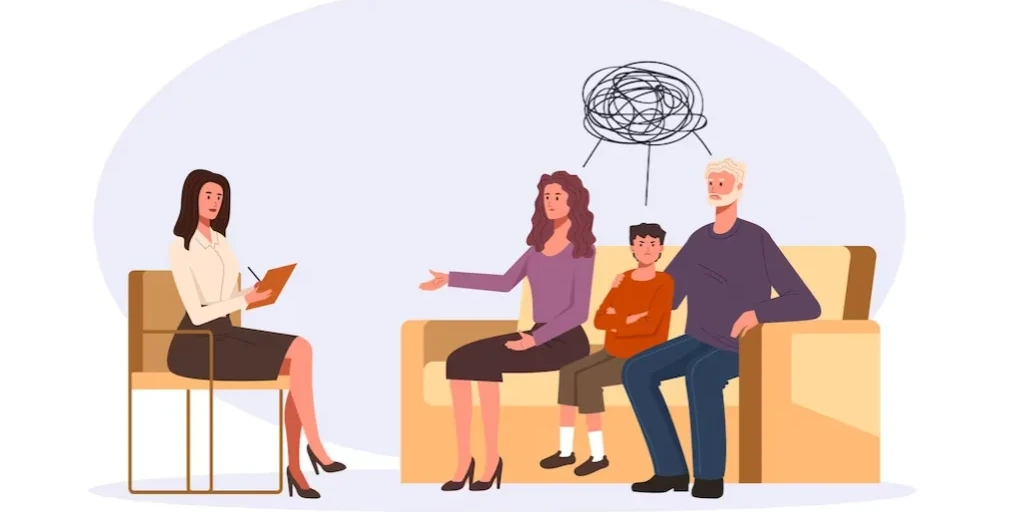































































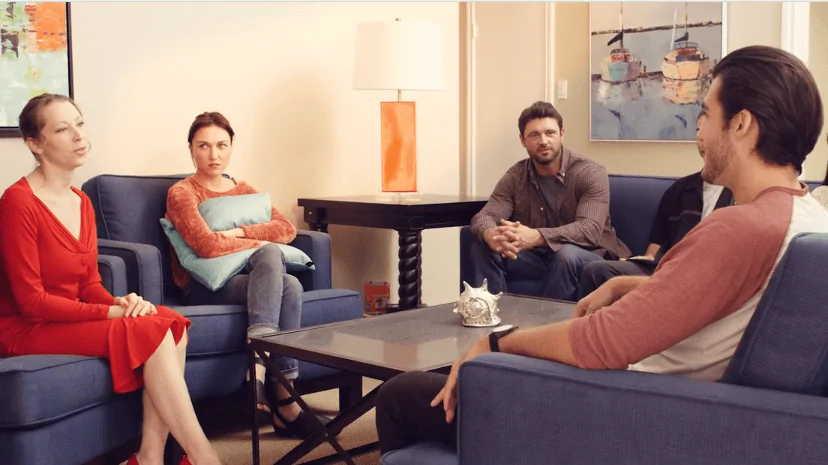







































































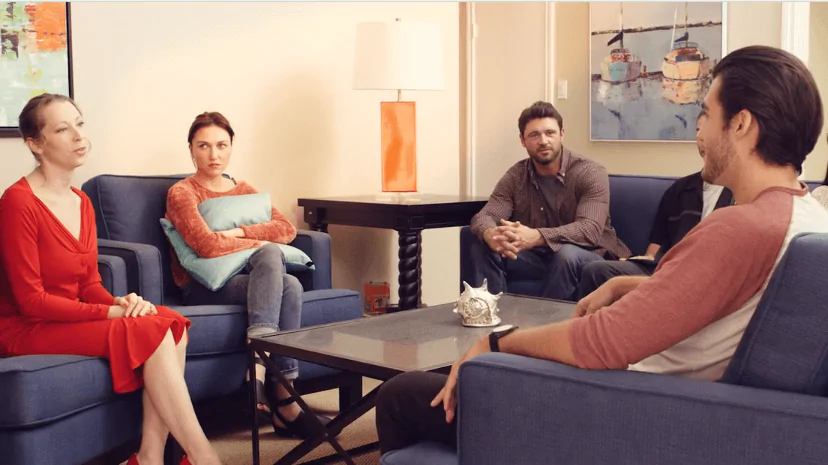
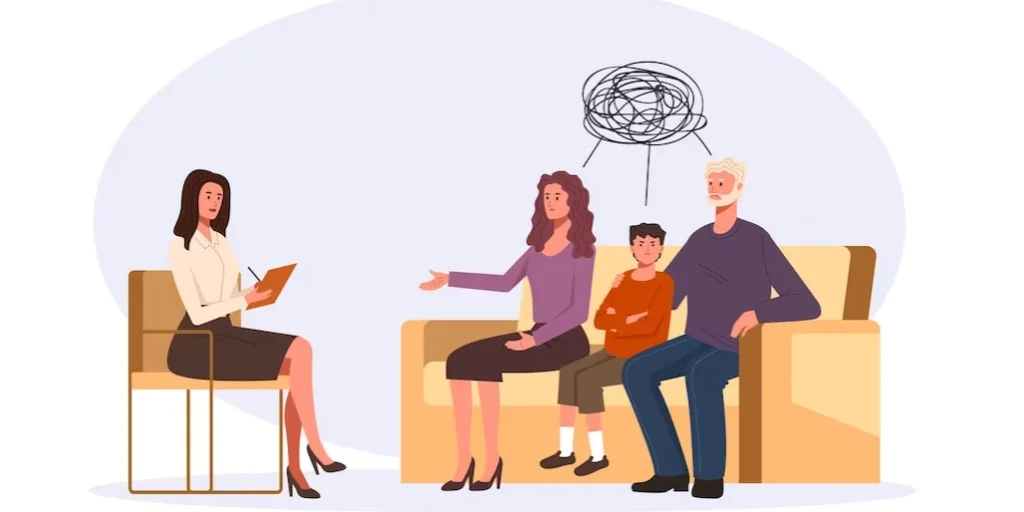













Butterfly House
Butterfly House is a private rehab located in Lake Worth, Florida. Butterfly House specializes in th...

Lets Grow Well Together
Lets Grow Well Together is a private rehab located in Boca Raton, Florida. Lets Grow Well Together s...

Pathways to Peace
Pathways to Peace is a private rehab located in West Palm Beach, Florida. Pathways to Peace speciali...

Solutions Recovery Center – Bond Way
Solutions Recovery Center is a mens only facility located in Coconut Creek, Florida. Solutions Recov...

Rally Point
Rally Point is a private rehab located in West Palm Beach, Florida. Rally Point specializes in the t...

Mental Health Rehab of the Palm Beaches
Mental Health Rehab of the Palm Beaches is a private rehab located in West Palm Beach, Florida. Ment...

Casa de Recuperacion Para Alcoholicos Factor Ekis Latino
Casa de Recuperacion Para Alcoholicos Factor Ekis Latino is a non-profit rehab located in West Palm ...

Compass Health Systems
Compass Health Systems is a private rehab located in Boynton Beach, Florida. Compass Health Systems ...

Life of Purpose
Life of Purpose is the first primary care treatment center on a college campus in the United States....

Drug Abuse Treatment Association
Drug Abuse Treatment Association offers inpatient and outpatient treatment for individuals with alco...

Growing Together
Growing Together is a private rehab located in Lake Worth, Florida. Growing Together specializes in ...

Professional Enhancement Services
Professional Enhancement Services is a private rehab located in Delray Beach, Florida. Professional ...

Solutions Recovery Center – State Road
Solutions Recovery Center is a mens only facility located in Coconut Creek, Florida. Solutions Recov...

Center for Self Discovery
Center for Self Discovery is a private rehab located in Boynton Beach, Florida. Center for Self Disc...

Treatment Center of the Palm
Treatment Center of the Palm is a private rehab located in Boynton Beach, Florida. Treatment Center ...

Casa de Recuperacion Para
Casa de Recuperacion Para is a private rehab located in West Palm Beach, Florida. Casa de Recuperaci...

Life Solutions
Life Solutions is a private rehab located in West Palm Beach, Florida. Life Solutions specializes in...

Lighthouse Recovery
Lighthouse Recovery is a private rehab located in Delray Beach, Florida. Lighthouse Recovery special...

Renaissance Recovery Center
Renaissance Recovery Center is a private rehab located in Lake Worth, Florida. Renaissance Recovery ...

New Horizons – Outpatient
New Horizons is a private rehab located in Delray Beach, Florida. New Horizons specializes in the tr...

The Bridge
The Bridge is a private rehab located in Boca Raton, Florida. The Bridge specializes in the treatmen...

Comprehensive Alcoholism Treatment Programs
Comprehensive Alcoholism Treatment Programs is a non-profit rehab located in Belle Glade, FL. Compre...

AA – Alcoholics Anonymous
AA – Alcoholics Anonymous is a non-profit rehab located in West Palm Beach, Florida. AA – Alcoholics...

The Treatment Center of the Palm Beaches
The Treatment Center of the Palm Beaches is a private rehab located in Jupiter, Florida. The Treatme...

LL & R Stepping Stones
LL & R Stepping Stones is a sober living program where people can enjoy a clean and sober environmen...

Lifescape Solutions
Lifescape Solutions is a private rehab located in Delray Beach, Florida. Lifescape Solutions special...

Stephanies Family Sober House
Stephanies Family Sober House is a private rehab located in Lake Worth, Florida. Stephanies Family S...

Discovery House
Discovery House is a private rehab located in Delray Beach, Florida. Discovery House specializes in ...

Gateway to Recovery
Gateway to Recovery is a private rehab located in Delray Beach, Florida. Gateway to Recovery special...

New Options of Royal Palm Beach
New Options of Royal Palm Beach is a private rehab located in West Palm Beach, Florida. New Options ...

Total Recovery Now
Total Recovery Now is a private facility that offers accessible and affordable treatment to adults s...

Parallaxis Psychotherapy
Parallaxis Psychotherapy is a private rehab located in Lake Worth, Florida. Parallaxis Psychotherapy...

Treatment Alternatives
Treatment alternatives is a leader in the field of addiction recovery with over 25 years of combined...

CDAO – Community Drug Abuse Organization
CDAO – Community Drug Abuse Organization is a private rehab located in West Palm Beach, Florida. CDA...

Synergy Group Services
Synergy Group Services offer a wide range of programs for those individuals struggling with substanc...

Casa de Recuperacion Para Alcoholicos
Casa de Recuperacion Para Alcoholicos is a non-profit rehab located in Lake Worth, Florida. Casa de ...

Cleantime Recovery
Cleantime Recovery is a private rehab located in Lake Worth, Florida. Cleantime Recovery specializes...

AA – Alcoholics Anonymous – Northeast 6th Avenue
AA – Alcoholics Anonymous – Northeast 6th Avenue is a non-profit rehab located in Delray Beach, Flor...

Alan Scott
Alan Scott is a private rehab located in West Palm Beach, Florida. Alan Scott specializes in the tre...

South Florida Detox Center
South Florida Detox Center is an outpatient opiate detoxification center located in Sunrise, Florida...

Alternatives in Treatment
Alternatives in Treatment is a comprehensive, 12 step focused drug and alcohol rehab in West Palm Be...

The Crossroads Club
The Crossroads Club is a private rehab located in Delray Beach, Florida. The Crossroads Club special...

Addiction Research and Consulting Corporation – North Military Trail
Addiction Research and Consulting Corporation – North Military Trail is a private rehab located in W...

Quest Counseling Center
Quest Counseling Center is a private rehab located in Lake Worth, Florida. Quest Counseling Center s...

Atlantic Counseling Services
Atlantic Counseling Services is a private rehab located in Boynton Beach, Florida. Atlantic Counseli...

Angel’s Recovery
Angel’s Recovery is a private rehab located in Delray Beach, Florida. Angel’s Recovery specializes i...

The Watershed Treatment Programs – Watershed Way
The Watershed is a leading inpatient rehabilitation center that helps addicts and alcoholics recover...

Stepping Stones Recovery Homes
Stepping Stones Recovery Homes is a private rehab located in Boynton Beach, Florida. Stepping Stones...

Origins of Hope
Origins of Hope offers recovery for women from alcohol and drug addiction, programs provides women w...

Sober Living Outpatient
Sober Living Outpatient is a private rehab located in Delray Beach, Florida. Sober Living Outpatient...

Seventy Seven Recovery
Seventy Seven Recovery is a state-of-the-art substance abuse treatment facility located in beautiful...

AION Recovery
AION Recovery is a Private rehab located in Delray Beach, Florida. AION Recovery specializes in the ...

Palm Partners – Recovery Center
Located in the iconic, tranquil and tropical Palm Beaches, Palm Partners Recovery Center is a safe h...

Cove Center For Recovery
Cove Center For Recovery is a private rehab located in Boca Raton, Florida. Cove Center For Recovery...

Forrest Hill – Outpatient
Forrest Hill – Outpatient is a private rehab located in West Palm Beach, Florida. Forrest Hill – Out...

Teen Treatment Center of the Palm Beaches
Teen Treatment Center of the Palm Beaches is a highly respected drug and alcohol rehab center in Flo...

Drug Abuse Treatment Association – Walter D. Kelly Center
The Drug Abuse Treatment Association – Walter D. Kelly Center is a drug and alcohol rehab for adults...

Sanctuary
Sanctuary is a private rehab located in Delray Beach, Florida. Sanctuary specializes in the treatmen...

Sound Recovery Solutions
Sound Recovery Solution’s goal is to assist in facilitating clients’ integration into living full an...

Addiction Therapy
Addiction Therapy is a private rehab located in Delray Beach, Florida. Addiction Therapy specializes...

Addiction Research and Consulting Corporation – Exchange Court
Addiction Research and Consulting Corporation – Exchange Court is a private rehab located in West Pa...

Drug Abuse Treatment Association
Drug Abuse Treatment Association - East Tiffany Drive offers outpatient treatment for individuals wi...

The Watershed Treatment Program
The Watershed Treatment Program provides a full continuum of care, which is necessary when combating...

Recovery Road
Recovery Road, formerly known as Sunspire Health Recovery Road, provides treatment in Palm Beach Gar...

East Coast Recovery Delray
East Coast Recovery Delray is a private rehab located in Delray Beach, Florida. East Coast Recovery ...

The Lukens Institute
The Lukens Institute is a private rehab located in Palm Beach Gardens, FL. The Lukens Institute spec...

Multilingual Psychotherapy Center
Multilingual Psychotherapy Centers vision is to expand its mental health service to all the differen...

A Safe Place Coed Sober Living Transitional Home
A Safe Place Coed Sober Living Transitional Home, located in Delray, Florida, provides addiction tre...

New Horizons Sober Community
New Horizons Sober Community is a private rehab located in Delray Beach, Florida. New Horizons Sober...

Miracles Club
Miracles Club is a non-profit rehab located in West Palm Beach, Florida. Miracles Club specializes i...

Q Health
Q Health provides expert behavioral healthcare to adolescents, adults, and older adults across the c...

Best Life Counseling
Best Life Counseling is a private rehab located in North Palm Beach, Florida. Best Life Counseling s...

Oak Tree Delray
Oak Tree Delray is a private rehab located in Delray Beach, Florida. Oak Tree Delray specializes in ...

Boca Counseling Center
Boca Counseling Center is a private rehab located in Boca Raton, Florida. Boca Counseling Center spe...

New Beginnings Recovery Center
New Beginnings Recovery Center offers outpatient and inpatient treatment for individuals with alcoho...

New Horizons
New Horizons is a private rehab located in Delray Beach, Florida. New Horizons specializes in the tr...

Centro de Orientacion Familiar Hispano
Centro de Orientacion Familiar Hispano is a private rehab located in Delray Beach, Florida. Centro d...

Awakenings of Florida
Awakenings of Florida is a private rehab located in Boca Raton, Florida. Awakenings of Florida speci...

Kosher Sobriety
Kosher Sobriety is a private rehab located in Boca Raton, Florida. Kosher Sobriety specializes in th...

Life Changes Addiction Treatment
Life Changes Addiction Treatment is a private rehab located in West Palm Beach, Florida. Life Change...

Watershed Treatment Program
Watershed Treatment Center is a drug and alcohol treatment center located in Boca Raton, Florida. Th...

Right Side of the Tracks
Right Side of the Tracks is a private rehab located in Boynton Beach, Florida. Right Side of the Tra...

New Directions
New Directions is a private rehab located in Boynton Beach, Florida. New Directions specializes in t...

Prevention Connection
Prevention Connection is a private rehab located in Jupiter, Florida. Prevention Connection speciali...

Into Action Treatment
Into Action Treatment is a private rehab located in Boynton Beach, Florida. Into Action Treatment sp...

Step Down
Step Down, Inc is a South Florida intensive outpatient treatment center that specializes in treatmen...

Seaside House
Seaside House is an all-male sober living house that seeks to help with long-term sobriety. Seaside ...

Life Steps
Life Steps is an Outpatient Counseling Center located in beautiful downtown Boynton Beach, Florida. ...

Proactive Recovery Center – Swinton Ave
Proactive Recovery Center - Swinton Ave is a drug and alcohol treatment center located in beautiful ...

Chiron Recovery Center
Chiron Recovery Center specializes in the treatment of substance abuse offering state-of-the-art alc...

Immersion Recovery Center – Beverly Drive
Immersion Recovery Center - Beverly Drive is a 12-step addiction treatment facility serving men and ...

Wellness Center Of Palm Beach
Wellness Center of Palm Beach has a full continuum of care to assist the chemically dependent indivi...

Americare Rehabilitation
Americare Rehabilitation is a private rehab located in Boynton Beach, Florida. Americare Rehabilitat...

Serenity House Detox
Serenity House Detox is a small cozy private medical detox facility now in several locations. Sereni...

Sober City Recovery Center
Sober City Recovery Center - Prosperity Farms Road is a licensed Intensive Outpatient Treatment faci...

Life Recovery of the Palm Beaches
Life Recovery of the Palm Beaches is a boutique drug/alcohol treatment center that specializes in in...

Empathic Recovery
Empathic Recovery is an Intensive Outpatient treatment facility located in Boynton Beach, FL. Empath...

Jerome Golden Center for Behavioral Health -11th street
The Jerome Golden Center for Behavioral Health is non-profit organization located at Belle Glade, Fl...

Hope Recovery And Wellness
Hope Recovery + Wellness is a private treatment center located in West Palm Beach, Florida. Hope Rec...

The Recovery Center for Women of the Palm Beaches
The Recovery Center for Women of the Palm Beaches is a private rehab located in Lake Worth, Florida....

Recovery First
Recovery First - Medical Center Way helps clients break free from the addiction, with integrated, in...

Forward Counseling Associates
Forward Counseling Associates in Boynton Beach, Florida specializes in a wide-variety of counseling ...

The Treatment Center of the Palm Beaches
The Banyan Treatment Center in Lake Worth, Florida, is a drug and alcohol rehabilitation facility ca...

New Objectives
New Objectives provides individualized recovery plans for addiction therapy, catering to the needs o...

Reliance Treatment Centers
Reliance Treatment Centers is a private organization committed to providing the most professional, i...

Recovery Association Partial Hospitalization Program – Outpatient
Recovery Association Partial Hospitalization Program – Outpatient is a private rehab located in West...

Jerome Golden Center for Behavioral Health – NW Avenue
Jerome Golden Center for Behavioral Health - NW Avenue provides treatment for children and adults wi...

Achieve Behavioral Healthcare
Achieve is a gender-specific addiction treatment facility in Delray Beach, Florida. Achieve assists ...

Grace’s Way Recovery
Grace’s Way Recovery offers outpatient programs for individuals with alcohol and/or substance addict...

Holistic Will
Holistic Will is a comprehensive addiction and dual diagnosis treatment facility of its kind. At Hol...

ReLife Solutions Center
ReLife Solutions Center offers Intensive Outpatient and Outpatient treatment for adults. Clients are...

Restorations Recovery
Restorations Recovery, located in sunny South Florida, is a leader in Addiction and Behavioral Healt...

Next Chapter Addiction Treatment
Next Chapter Addiction Treatment is an all-male addiction and trauma program, that immerses the clie...

Sober City Recovery Center
Located in Delray Beach, within the heart of beautiful Palm Beach County, Florida, Sober City Recove...

Recovery Restart
Recovery Restart is a private rehab located in Boynton Beach, Florida. Recovery Restart specializes ...

Q Health
Q Health offers hope, recovery and wellness to adolescents and adults in need of mental health and s...

The Cottages Of The Palm Beaches
The Cottages Of The Palm Beaches is a private rehab located in Lake Worth, Florida. The Cottages of ...

PAX Campus
Pax Campus, or Campus Recovery, is an accredited substance abuse and co-occurring treatment center i...

Royal Life Center – Swinton Avenue
Royal Life Center is a private rehab located in Delray Beach, Florida. Royal Life Center - Swinton A...

Behavioral Health of the Palm Beaches
Behavioral Health of the Palm Beaches, located in Palm Beach, Florida, provides mental health and al...

Royal Life Center
Royal Life Center - Surf Road is a private rehab located in West Palm Beach, Florida. Royal Life Cen...

New Solutions Counseling
New Solutions Counseling is a private rehab located in North Palm Beach, Florida. New Solutions Coun...

The Treatment Center
The Treatment Center - Congress Avenue is a highly respected drug and alcohol rehab center in Florid...

Satori Waters
Satori Waters - 3rd Street is a drug and alcohol treatment center that incorporates and combines sev...

Easy Horizons
Easy Horizons is a private rehab for adults men and women located at Delray Beach, Florida. Easy Hor...

Start Living
Start Living is a private rehab located in North Palm Beach, Florida. Start Living specializes in th...

HARP
Since 1970, HARP has used personalized and time-tested holistic treatment plans to help individuals ...

Peak Recovery
Peak Recovery treats chemical dependency by offering an intensive outpatient program (IOP) without r...

SOHO Wellness Initiative
SOHO Wellness Initiative is a substance abuse treatment center that offers Day/Night substance abuse...

Lifesteps Counseling Center
Lifesteps Counseling Center is an outpatient counseling center offering Partial Hospitalization, Int...

i Kare Treatment Center
Located in West Palm Beach, FL, is the dual diagnosis rehab facility, i-Kare Treatment Center. This ...

A Safe Harbour
A Safe Harbour provides an intensive outpatient program for adolescents and adults struggling with a...

Florida Counseling Group
Florida Counseling Group is a private rehab located in West Palm Beach, Florida. Florida Counseling ...

New Perspectives
New Perspectives provides medication-assisted treatment (MAT) to support traditional methods and the...

USA Quit Smoking
USA Quit Smoking is a private rehab located in North Palm Beach, Florida. USA Quit Smoking specializ...

Family Behavioral Center
Family Behavioral Center is a private rehab located in Delray Beach, Florida. Family Behavioral Cent...

Boca Recovery Center
Boca Recovery Center is a private rehab located in Delray Beach, Florida. Boca Recovery Center speci...

Discovery Mood & Anxiety Program – North Palm Beach
Discovery Mood and Anxiety Program, located in Palm Beach, Florida, provides alcohol and drug rehab ...

The Recovery Village Palm Beach at Baptist Health – Outpatient
The Recovery Village Palm Beach at Baptist Health delivers comprehensive alcohol and drug rehab serv...

Retreat Behavioral and Mental Health Center Lake Worth
Retreat Behavioral and Mental Health Center Lake Worth is a private rehab located in Lake Worth, Flo...

Jerome Golden Center for Behavioral Health
Jerome Golden Center for Behavioral Health - 45th street provides treatment for children and adults ...

AA – Alcoholics Anonymous – South Federal Highway
AA – Alcoholics Anonymous – South Federal Highway is a non-profit rehab located in Delray Beach, Flo...

Drug Testing and Counseling Services
Drug Testing and Counseling Services is a private rehab located in Delray Beach, Florida. Drug Testi...

Good Future
Good Future is a private rehab located in Delray Beach, Florida. Good Future specializes in the trea...

Drug Abuse Foundation
Drug Abuse Foundation offers outpatient treatment for individuals with alcohol and/or substance addi...

Bridge to Life Ministries
Bridge to Life Ministries is a private rehab located in Delray Beach, Florida. Bridge to Life Minist...

RECO Intensive
RECO Institute offers Intensive Outpatient treatment and sober living in nine single-family homes fo...

Hanley Center at Origins – Family & Outpatient
Hanley Center at Origins - Family & Outpatient offers intensive outpatient program for individuals w...

AA – Alcoholics Anonymous – Distrito Linguistico 18
AA – Alcoholics Anonymous – Distrito Linguistico 18 is a non-profit rehab located in Jupiter, Florid...

Serenity Now
Located in the Palm Beaches, Serenity Now, offers an ideal setting for people recovering from mental...

